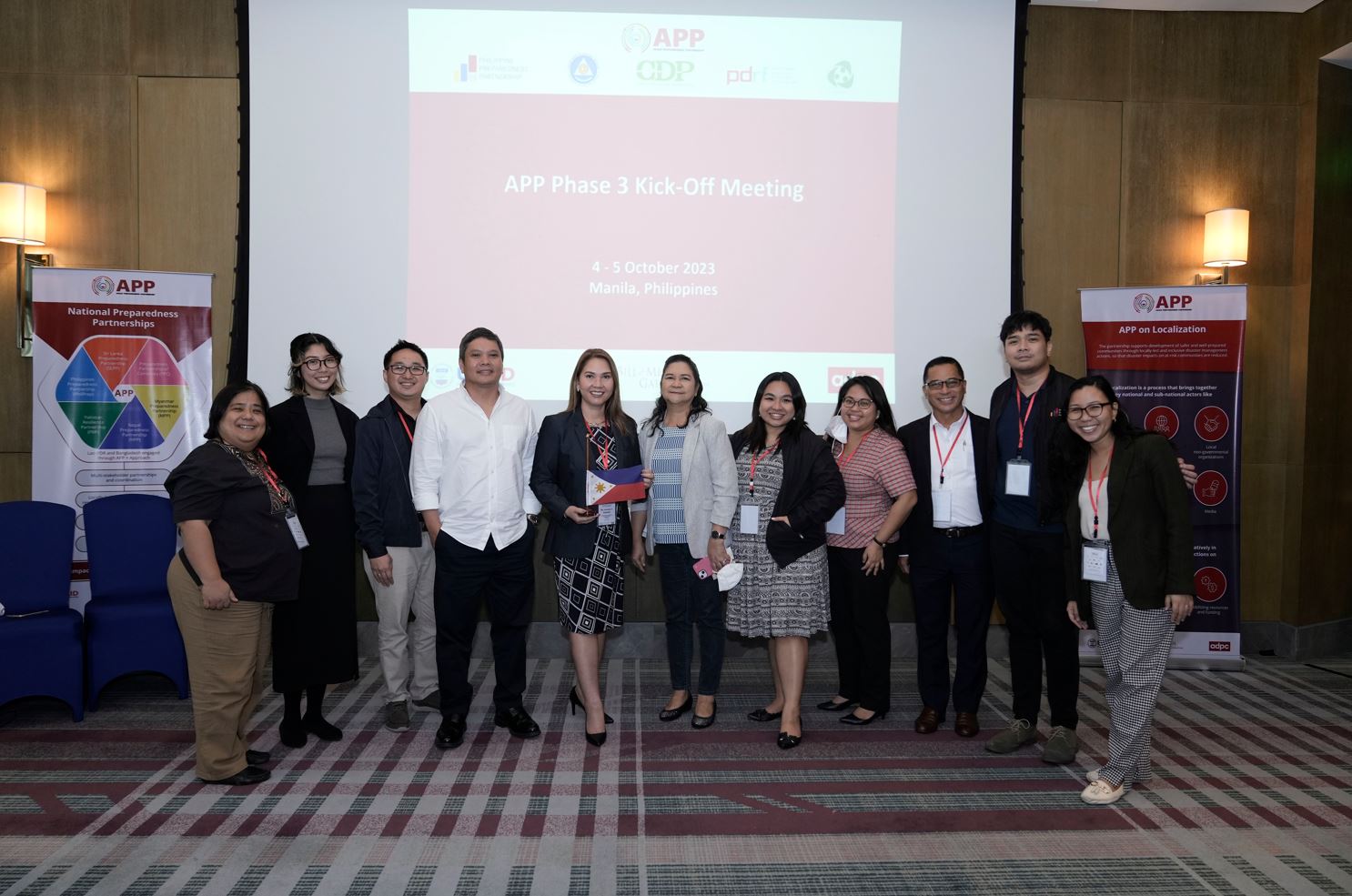
The Asian Preparedness Partnership (APP) kicks off its 3rd Phase on October 4-5, 2023. Following a review of the gains of the partnership during the Regional Steering Committee Meeting on October 3, the APP countries moved from co-creation, mobilization, and implementation in previous phases to a focus on consolidation and sustainability.
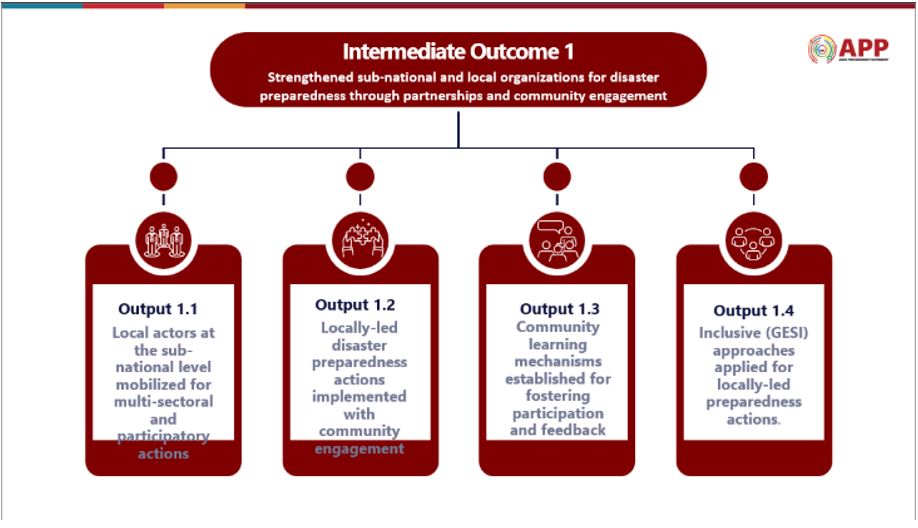
The Phase 3 framework is built upon three pillars. The first pillar prioritizes Local Preparedness, with the aim of creating strengthened sub-national and local organizations for disaster preparedness through partnerships and community engagement. This pillar seeks to ensure that the multi-stakeholder partnership cascades to the ground. Mobilization of local governments, creation of local chapters, and establishment of community learning mechanisms are the focus of this pillar, underscored by the cross-cutting theme of inclusivity, especially the marginalized and vulnerable groups.
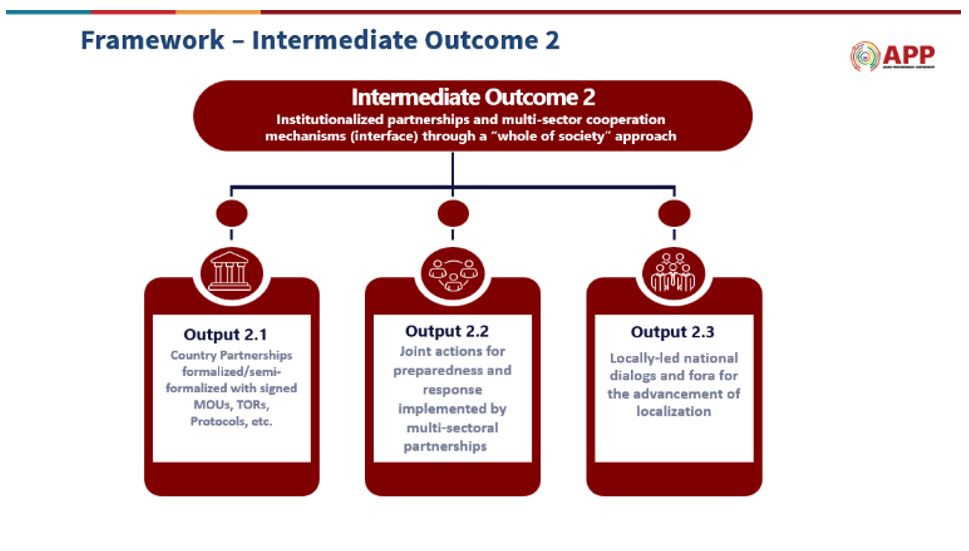
The second pillar emphasizes the institutionalization of the national partnerships through formal agreements, or registration to national entities, tailored to each country’s local context. It also encourages the continuation of established practices conducted by the partnerships from joint action during preparedness and response measures to knowledge management and dialogs for the advancement of localization.
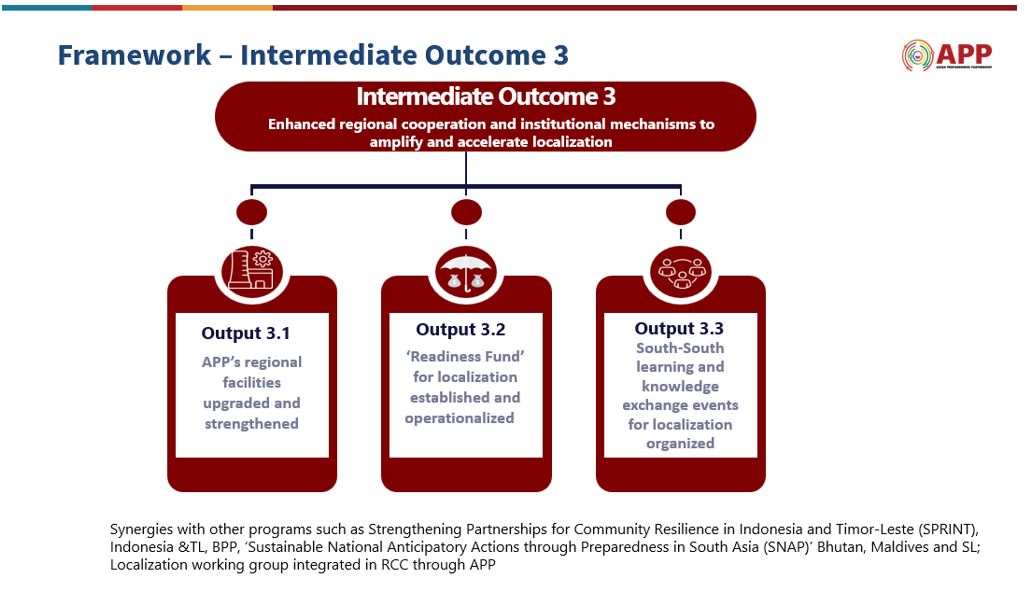
The third pillar centers on enhancing regional cooperation through improvement of regional APP facilities and South-South learning and knowledge exchange. This pillar also pushes for sustainability through the creation of a “readiness fund”.

In the initial discussions on the operationalization of the preparedness fund, key principles and criteria, governance and participatory decision-making, and the role of national steering committees with fund implementation and reporting, as well as how to collect vital learnings and create mechanisms of sharing were explored. The country preparedness partnerships took a central role in determining these factors in true participatory decision-making fashion, including nominating names for the preparedness fund.
The sessions also touched upon developing localization models at the sub-national level where participants were given the opportunity to discuss how localization can be done within each country and within each sector.
The government representatives shared that “governance is done by the government” and that partnership must be done at all levels, promoting a whole of society approach, to reach the last mile. They stressed the need to follow the National Disaster Management Plan, and Rehabilitation and Reconstruction Plan whilst assessing the local context by identifying capacities and resources, engaging community partners–especially the vulnerable sector, and conducting capacity-building activities, and raising awareness.
Civil society representatives shared their commitment to sustaining the networks and connections among local CSOs by capacitating them in conducting assessments, planning, promoting locally-led action and inclusive approaches, and conducting awareness-raising and desensitization of certain issues.
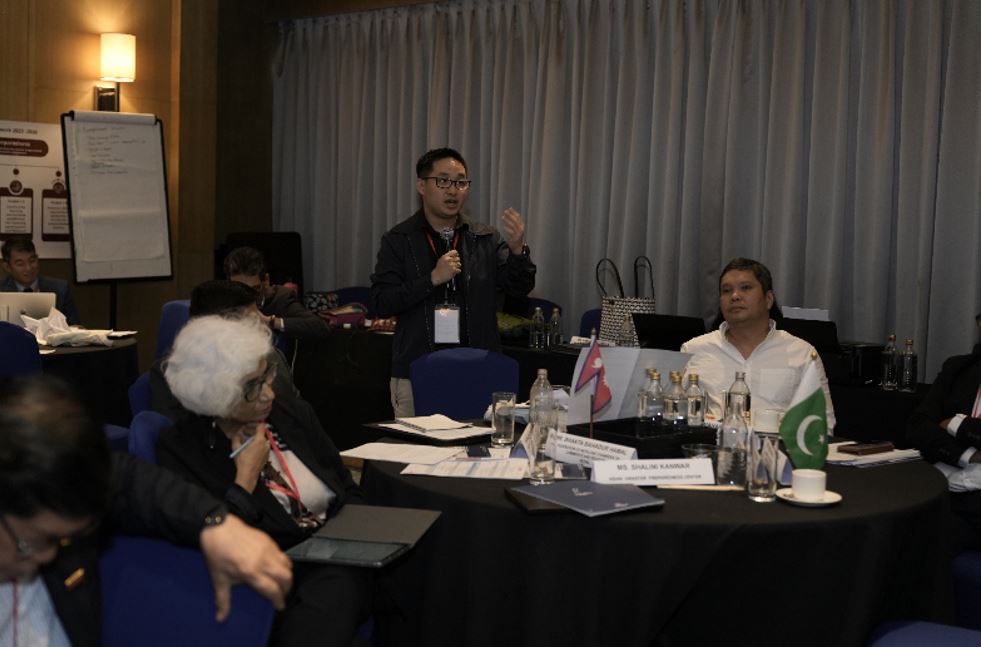
The private sector representatives focused on disaster risk reduction and management. They recognize that there is an extensive network within the countries from national to district level through the Chambers of Commerce. Building the disaster resilience of enterprises through capacity building activities, such as business continuity trainings, is also of high priority to them. Pakistan even shares that of their 75 chambers, 25 are women-led.
For the academic sector, Dr. Mahar shared that higher education institutions and universities have diverse specializations that the 3 other humanitarian actors (government, private sector, civil society) can tap into in order to implement humanitarian work and support communities.
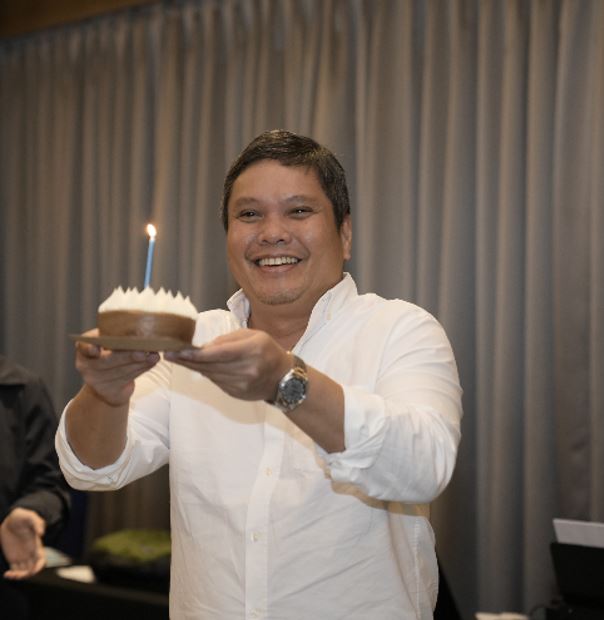
“We work with the community, listen to what they envision, and contribute our expertise and training to realizing these visions–this is how we reach the last mile,” he shared, which was followed by a surprise birthday greeting to him by the members of the Asian Preparedness Partnership.
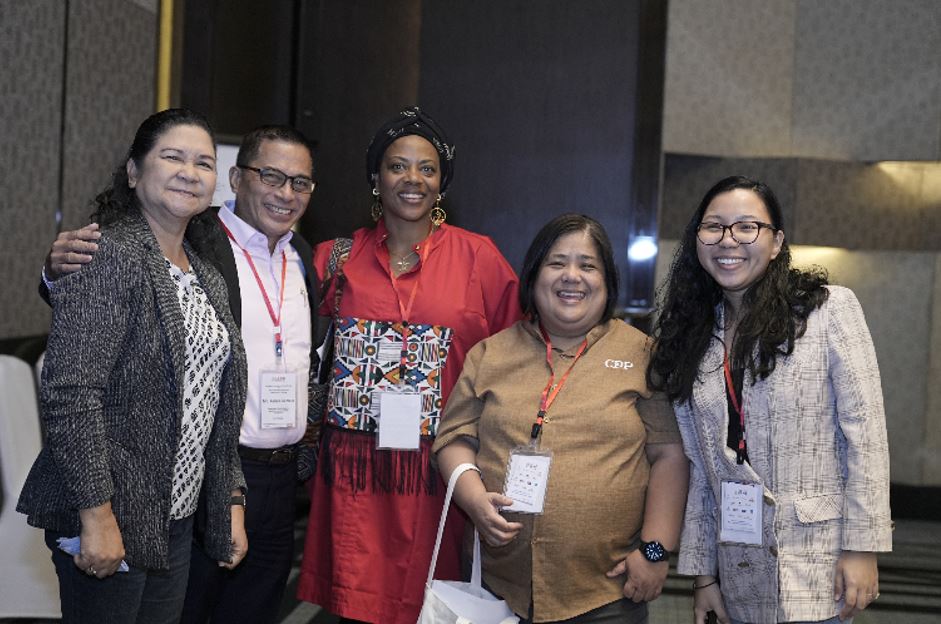
During the discussion for localization at the subnational level, Asst. Prof. Ruben Gamala shared PhilPrep’s plans to conduct a Phase 3 Launch within the country to bring together target actors to promote the sustainability and localization agenda of the APP in the Philippines.
Posted by UP Resilience Institute Education on October 23, 2023
